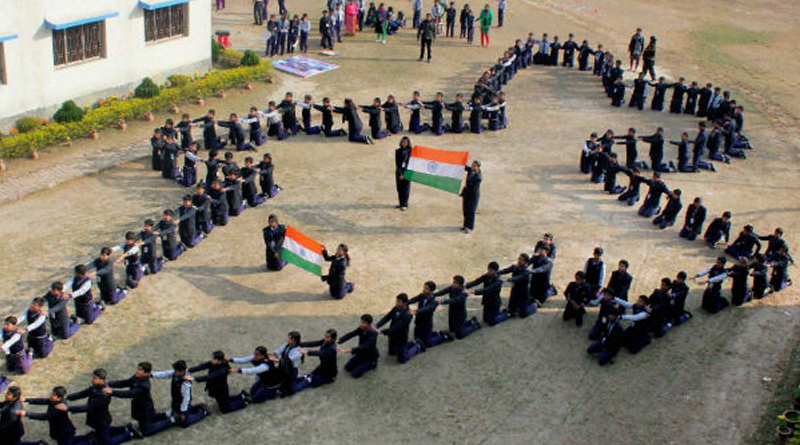Among the worst examples of judicial overreach was last week\’s declaration by the Madras High Court that the singing of Vande Mataram should be made compulsory in schools, colleges and both government and private offices, including, presumably , The Times of India. Let me stick my neck out and say I refuse to be coerced in this fashion. I have sung Vande Mataram on sundry social occasions, but am outraged by the decree that I must do so in my office to prove my patriotism. My own view of patriotism requires me to oppose this, and to urge others to do the same. The Supreme Court needs to nullify this judgment speedily .
The case before the high court was not about making the singing of any song mandatory . A government job applicant had, in his entrance exam, said in reply to a question that Vande Mataram was written in Bengali.The examiner said no, this was a Sanskrit song. The honourable court should have limited its verdict to this issue.
What certainly falls within judicial turf is the Constitutional freedom of speech. This must include the freedom of singing, as opposed to coerced singing. The Supreme Court has clarified that even though it has decreed that the national anthem, Jana Gana Mana, must be played in cinema theatres, the audience is not obliged to sing along. There is no reason to make singing mandatory for any other song.
If a BJP state or central government passes a law obliging all citizens to sing Vande Mataram, that can be challenged as unconstitutional. Only at that stage should the courts come into the picture. I would expect them to stand up for Constitutional freedoms.
The once-sharp line between judicial and executive authority has long become a grey area. In many cases, the government has so violated its own duties, has been so corrupt and callous, that the public interest has been served by judicial intrusion into areas that in other democracies would be viewed as executive territory.Swaminomics has in the past defended judicial activism in cases of gross government complicity in illegalities (such as unauthorised iron ore mining). But mandating the singing of Vande Mataram is certainly not such a case.
The Madras High Court justifies mandatory singing by saying the song was among those sung during the independence movement. So what? Did every community and every freedom fighter sing it? No. The song traces its ancestry to Bankim Chandra Chatterjee\’s book, Anandamath, about a Hindu revolt against Muslim rulers. Was the song sung by millions of Muslims who participated in the independence movement? Absolutely not. Was it sung by Bhimrao Ambedkar and all Dalits? Or by Master Tara Singh and all his Sikh followers? No, and that is no measure at all of their patriotism.
When India gained independence, Vande Mataram was among the songs considered for the status of national anthem. But it was offensive to a large section of Muslims, and hence deemed inappropriate. National anthems and other patriotic songs should be instruments to unify citizens, not divide them (as Vande Mataram does). Were all the great leaders of the independence movement, including Jawaharlal Nehru and Sardar Patel, unpatriotic in rejecting Vande Mataram as the national anthem, and in opting against its singing in schools and offices? Did they not have the highest interests of the nation in their minds? But of course.How, then, is it the job of any court to overrule them on what constitutes patriotism?
Many other songs were associated with the independence movement, including Subhash Chandra Bose\’s Dilli Chalo Re, which was possibly sung more widely than Vande Mataram. The same is true of Raghupati Raghav Raja Ram, Gandhiji\’s hymn for religious harmony and unity . Also sung regularly at Gandhiji\’s prayer meetings was Abide With Me. His patriotism was inclusive enough to savour a hymn of the British conquerors. Because of this, Abide With Me is played every year by the armed forces band at the super-patriotic Beating Retreat ceremony after Republic Day in New Delhi. Vande Mataram does not figure.
It may be desirable to popularise all the songs associated with the independence movement. But why make their singing mandatory? Gandhiji would have said no.He thought ahimsa required him to persuade others, not force them, to do the right thing. The courts should heed his approach.


